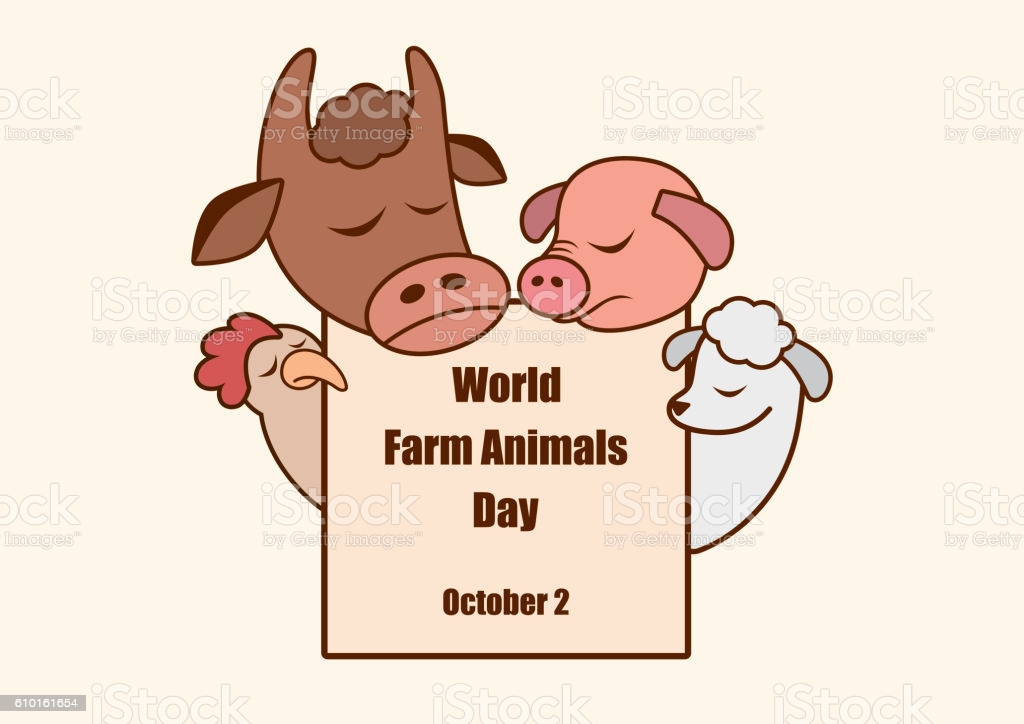Whenever we hear the date 2 October, we think of Mahatma Gandhi instantly. 2 October 1869 and 2 October 1983 has two things in common. The first one marks the birthday of Mohandas Karamchand Gandhi and we observed the second date as World Farm Animals Day. Another thing that is common between the two is Mahatma Gandhi’s belief in no violence and he was the leader of India’s non-violent movement against British rule and World Farm Animals Day was founded against the violent behaviour of humans towards farm animals like cows, pigs, turkeys, chickens and other guiltless animals. This day is celebrated to focus the attention of people and make them aware of human care of farm animals.
World Farm Animals Day was founded on 2 October 1983 and organised by Farm Animal Rights Movement (FARM). It is a global mission to stress the severe conditions suffered by farm animals and also to encourage people to improve their lives. Over 20 different countries of the world celebrate this event, including India. This day is considered a non-violent protest against slaughterhouses and factory farms.
Why 2 October?
Mahatma Gandhi was an Indian advocate who worked for non-violence and justice. Gandhi mentioned, “A nation’s significance can be decided by how its animals are dealt with”. Some animals never see the sun outside and die in misery. Did you ever imagine the impression made on a mother cow when her calves are taken away from them or a pig watching another pig being slaughtered or a chicken crying out in pain while observing other chickens bawl? It’s been more than 70 years since Gandhi’s death, even so, he remains an inspiration to the world.
According to the Livestock Census in India, which has been conducted once every five years since 1919-20, the indigenous cattle population has dropped by 6 per cent. Around 40 billion chickens are seriously influenced because of concentrated cultivating models. Then again, over 50 million dairy animals are cultivated for milk in unsatisfactory conditions. The day makes observance about the downsides of such treatment. Each year, we kill 65 billion animals to deliver meat, dairy and eggs. Most of these animals are restricted and deformed to grow big in a brief interval of time.
What can we do to save an animal?
- If you are not vegan, then commit to being one.
- Keep promoting vegan messages.
- Prepare a meal for someone who is not vegan yet.
- Try plant-based foods.
- Substitute all meat and fish in your diet.
All animals may live wilfully as we have, don’t put an end to their life as you don’t have any right to do so. Let’s pledge to save these animals on World Animal Farm Day.
Harshita Sinha

